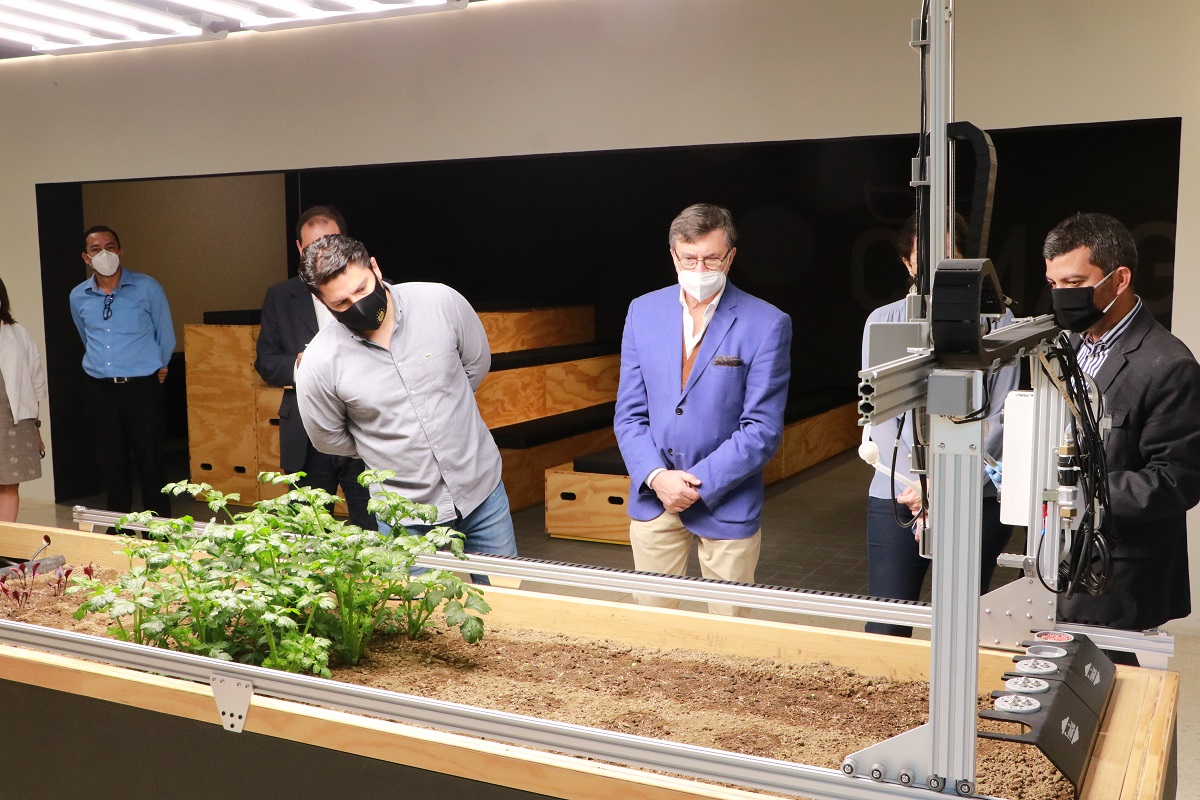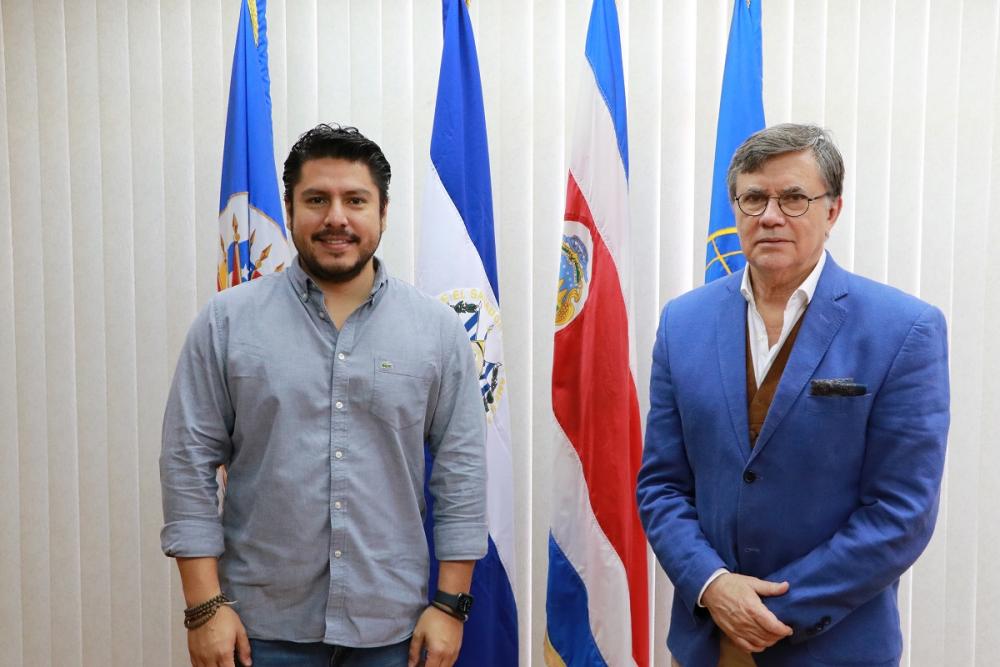David Martínez, Minister of Agriculture and Livestock of El Salvador, visited the headquarters of the Inter-American Institute for Cooperation on Agriculture (IICA) in Costa Rica to present the ambitious plan that seeks to position the country as an agricultural powerhouse in the region.

San Jose, 11 June 2021 (IICA). Modernize and strengthen the institutional framework on agriculture, incorporate new technologies to drive productivity, reinforce food security in El Salvador, and recreate the conditions to position the Central American country as an agricultural powerhouse in the region.
David Martínez, Minister of Agriculture and Livestock of El Salvador—accompanied by Deputy Minister Lily Paca—presented the ambitious goals of the Central American country’s Master Plan to Rescue Agriculture and highlighted the support for the initiative of the country’s agriculture sector.
“The central government is executing a Master Plan to Rescue Agriculture: one of the immediate priorities is to modernize and strengthen the Ministry of Agriculture and Livestock through new technologies to better serve the population in the context of the master plan. The next priority is to execute the master plan efficiently, helping the population to produce food with a food security program,” stated the senior official.
Minister Martínez was received by Manuel Otero, Director General of IICA, who reaffirmed “the full commitment to strengthening the technical support of El Salvador’s Master Plan to Rescue Agriculture” and who together explored opportunities for cooperation on innovation, technology, rural youth, digital extension, and plague control, among other topics of interest.
The Master Plan to Rescue Agriculture provides for assistance, technology, and monitoring of the sector and will be financed by the creation of two trusts allocated for “Coffee Rescue” and “Food Sovereignty and Agriculture Rescue”, explained the Salvadoran minister, who further indicated that the Plan has three main pillars: food sovereignty and agriculture rescue; coffee rescue; and rural development, all aimed at stimulating the production chain, dignifying producers, and creating two million jobs.
“The reason for our visit is that IICA has been a strategic ally since the beginning of our administration and it has the “know how” we need to effectively implement the Master Plan to Rescue Agriculture. IICA has a clear vision of the steps to take in terms of technology research, training, and technical assistance, which needs to be the jumping off point because it will help to ensure the program is achieved in record time and that we see spectacular results, which I have no doubt we will see”, stated Minister Martínez
Strong consensus to rebuild productive capacity
The minister recalled that years ago, El Salvador was one of the world’s top coffee producers, the leading regional exporter of melon, and was known as the “breadbasket of Central America”.
Along those lines and in the interest of rebuilding productive capacity, he emphasized the commitment to increasing vegetable production and adding value to the coffee sector “to generate an exceptional cup that can sell at a higher price. We’re very excited because we believe that with these commitments and the right assistance, we’re going to achieve extraordinary goals this year”.

Martínez underscored that the Plan, mandated by President Nayib Bukele, “would immediately dynamize the economy, creating jobs in agriculture, decent jobs, because it is a well-structured program”.
In addition to the Executive Power, the minister underscored “the excitement” of the private sector with the Plan. “We have a resilient population that has been fighting a hard battle, but now, with the Plan, support will reach them efficiently. I have no doubt that the Salvadoran people will rescue the economy through agriculture”, he stated.
At another point in his presentation, after a tour of IICA’s facilities during which he visited the Interpretive Center of Tomorrow’s Agriculture (CIMAG, in Spanish), the Fablab for innovation on agriculture, and the Typical Rural House, Minister Martínez referred to the link between the lack of opportunities in rural areas and the painful process of migration.
“It’s important to correlate them. Why does the population of not only El Salvador, but the entire region, migrate? Because of the lack of adequate conditions and opportunities. The plan creates those opportunities; it creates those conditions. The program covers how to grow, what to grow, where to grow, how to grow strategically, how to sell, what added value to add to each product. There’s also a program for rural development that will help to create decent infrastructure conditions in rural areas to stop migration, not only to the cities, but also to the United States. It is directly related to creating opportunities, to creating decent work conditions; it is directly related to stopping migration. We’re going to see exceptional results in lowering migration with this program”, he concluded.
Video in Spanish
More information:
Institutional Communication Division.
comunicacion.institucional@iica.int











